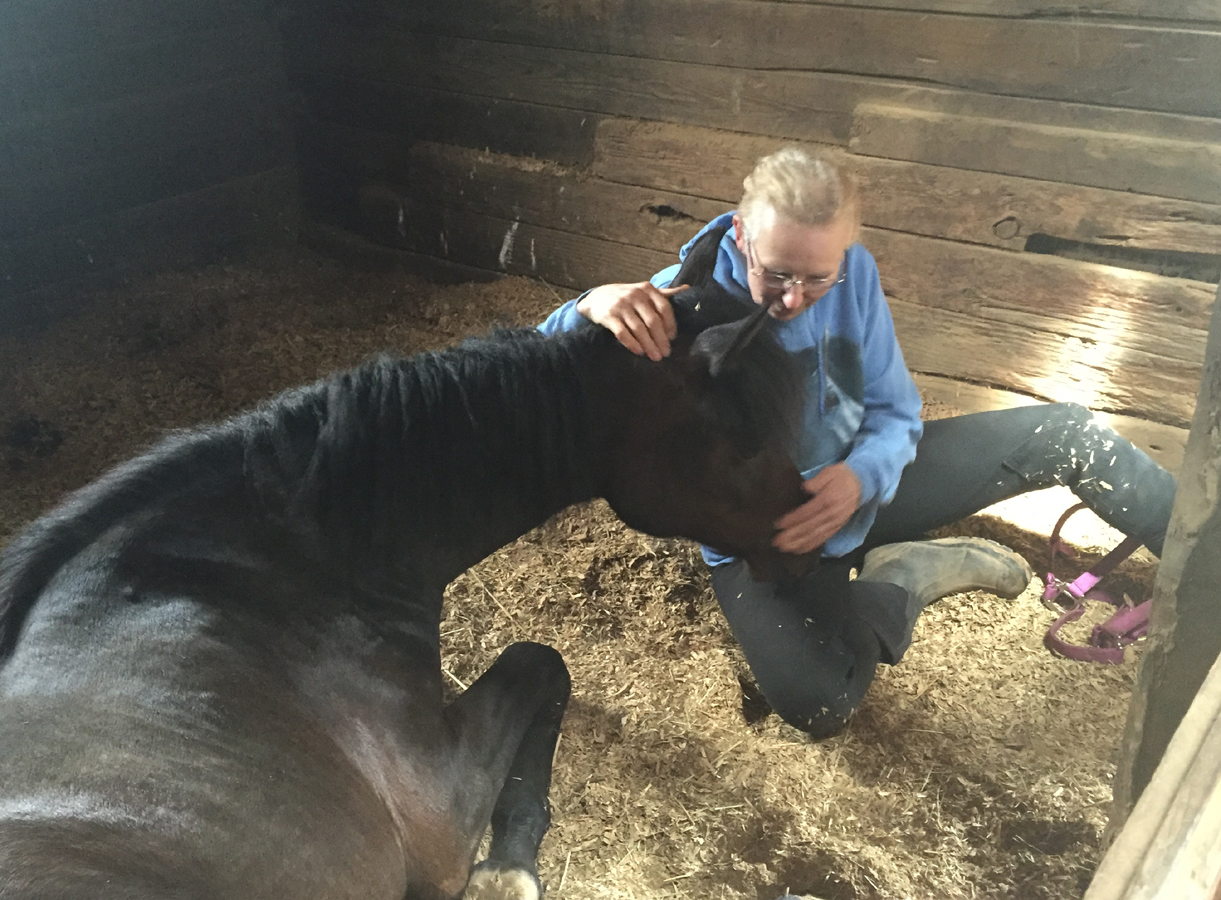
"The problem is never how to get new, innovative thoughts into your mind, but how to get old ones out."
(Dee Hock, founder and former CEO, Visa)
Each of us comes to horse ownership from different places; and we grow in many directions.
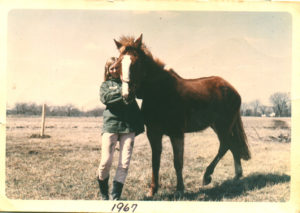
When I was sixteen, my family moved from our subdivision to a ten-acre farm house, and I up-scaled my bike for my first horse. Prior to purchase, my equestrian experiences amounted to hand-led pony rides and a grand total of three trips to public riding stables. As you can imagine, it was a pretty rocky start - ending with up-scaling my horse for a car when I graduated high-school.
Newly married and in my early twenties, I enrolled in riding lessons. My instructors worked under a UPHA Horseman of the Year who routinely sold five-gaited Saddlebreds for upwards of forty thousand dollars. He told me that horses are not as smart as dogs because they are prey animals. As is too often the case, because of his prestige, I blissfully believed him. Today, forty years later, we can find research on animal intelligence in the peer-reviewed scientific community. Maybe, we will learn that dogs are smarter - maybe, we won’t. Until then, I choose to believe that dogs were or are able to become smarter because (1) they live in our houses, and (2) they remain with one human for life.
Dogs have the benefit of 24/7/365 to learn human-as-a-second-language, while our horses have a pittance of our time to learn human-as-a-foreign-language. And, the communication disconnect goes both ways. If our horses ate and slept with us day-in and day-out, we would be able to read what they are saying and asking as well as we can read our dogs.
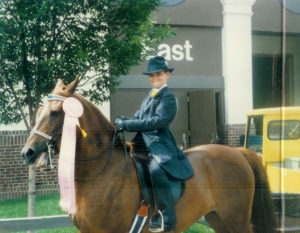
During those forty years since, I have been married twice, raised a son, and owned many horses. When my son was young, we competed on the state Morgan Horse circuit. For thirty of those years, I owned a small riding school where I taught novice-level lessons to mostly non-horse-owning beginners - a market sorely ignored by our traditional horse industry. My own teenage experiences served me well as I introduced horse-crazy families who were as clueless as I once had been to the hobby.
During all those years, I was pretty sure I understood horses. But, every so often, one of my horses, Stormy, would behave in a way that left me in awe. Storm and I shared a benefit that most horses and horse owners are denied, which is that she was born at my home, served as my son's show horse, my primary lesson horse, my personal trail horse and, in her late twenties, died at my home. She is buried behind my garage.
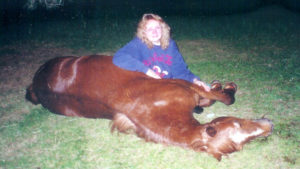
Storm and I were essentially co-workers forty hours a week for twenty years. Close to a thousand people took their first-ever ride on her, in addition to over a thousand Girl Scouts. I considered her my colleague, but never pondered the level of consciousness that was at work behind those beautiful eyes - until she would do something that would stop me in my tracks, leaving me wondering, "Did she really say what I thought she just said?!” Have you had those moments with a horse you know or knew well?
During the four decades I interacted with professional horse trainers, members of my state horse club, and personal horse friends, I never remember having a truly substantial conversation about just how smart a horse could be. I studied in a college psychology class that rats who were taught to run mazes and press food bars developed brains that were physically firm and well shaped; while rats who spent little time thinking had brains that were mushy and poorly defined. I remember coming to the conclusion that Abraham Lincoln was wrong - all [men] are not created equal - that even in the same American city, some are born into environments that encourage and support curiosity at a very young age; while others are born into homes without as much as a picture book. And, then, we wonder why they can’t perform in their teens. But, when it came to my horses, I simply cared for, trained, rode, and otherwise interacted with them in the manner in which I had been taught.
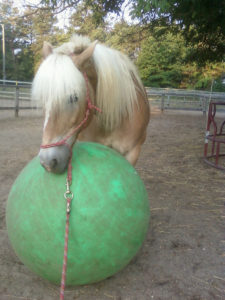
Around twenty years ago, the natural horsemanship trainers came on the scene. Both competition and trail riders were seeking a deeper relationship with their horses. While breed and discipline associations were (and still are) struggling to attract spectators, owners of every ilk were packing arenas three thousand at a time at a hundred dollars a pop to listen to Pat Parelli; and they were leaving with hundreds of dollars more in training materials. It left me wondering - Are horses who are trained by natural horse trainers given a greater opportunity to think? I will only go so far as to say maybe. Maybe, just a little.
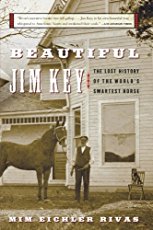 When I retired my lesson program and the bustle of families no longer filled my yard, I was left with a very quiet barn inhabited by four schooling mares who had served me well. Two have since died of age-related illnesses. About that time, I read Mim Eichler Rivas' documentary, "Beautiful Jim Key." If you’ve not yet read that book, buy it now. I so wish I had when Storm was still alive. I rue the fact that she deserved so much more than the life I gave her. Never again would I look at my horses as if they were anything less whole than me. It's not like I didn't know there was a person inside a horse. Of course, I did. But, now I wondered how, for forty-five years, I could have been so ingrained in traditional horsemanship that I never wondered just how much person.
When I retired my lesson program and the bustle of families no longer filled my yard, I was left with a very quiet barn inhabited by four schooling mares who had served me well. Two have since died of age-related illnesses. About that time, I read Mim Eichler Rivas' documentary, "Beautiful Jim Key." If you’ve not yet read that book, buy it now. I so wish I had when Storm was still alive. I rue the fact that she deserved so much more than the life I gave her. Never again would I look at my horses as if they were anything less whole than me. It's not like I didn't know there was a person inside a horse. Of course, I did. But, now I wondered how, for forty-five years, I could have been so ingrained in traditional horsemanship that I never wondered just how much person.
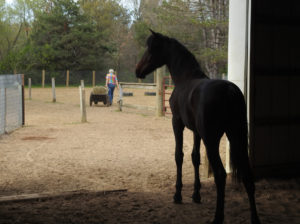 I began to consciously interact with my two remaining horses, Sara and Sparky, as if they were truly as whole as me, and they became surprisingly more expressive. Two years ago, at the age of sixty-three, I adopted Zena, a pregnant Morgan mare. Her daughter, Ruby, is eighteen months old as I write. When she is thirty-five, I will be ninety-eight. I am trying my best, in spite of way too many deeply-ingrained knee-jerk habits, to raise her whole. I would like to give her the opportunity to have a physically firm and well-shaped brain!
I began to consciously interact with my two remaining horses, Sara and Sparky, as if they were truly as whole as me, and they became surprisingly more expressive. Two years ago, at the age of sixty-three, I adopted Zena, a pregnant Morgan mare. Her daughter, Ruby, is eighteen months old as I write. When she is thirty-five, I will be ninety-eight. I am trying my best, in spite of way too many deeply-ingrained knee-jerk habits, to raise her whole. I would like to give her the opportunity to have a physically firm and well-shaped brain!
I can't remember how I came across my first horse conscious trainer - he was online halfway across the nation - but I have since learned that there are hundreds of thousands of horse conscious owners all around the world. They share experiences in a loosely woven community that appears to be growing exponentially. Snippets of their philosophies are appearing in books sold into our traditional horse industry. I find myself reading an author’s comment about a horse and thinking about my relationship with my husband, or children, or grandchildren, because we are all, after all, pretty much the same.
If you want to research the horse conscious community, I suggest you visit www.horseconscious.com. You'll get a great leg-up there, and find worldwide mentors and online friends. If you are not quite ready to do that, you can simply stay here and learn along with me. I will appreciate and respect any comments you want to send my way about what you read here, what you hear and read elsewhere, and how and in what ways you are growing your relationship with your horse.
I look forward to visiting with you,
Colleen Pace, Davison, Michigan USA
Tell me about yourself
Drop me a note to let me know about your own introduction to horses, what you are doing with them now, and anything else you'd like me to know as I advance A Horse In My House.
Disclosure - Some of the services recommended on this website provide compensation to ahorseinmyhouse.com. All recommendations are based foremost upon an honest belief that the product, service, or site will benefit my site visitors in some way. Read the full Compensation Disclosure for more details.